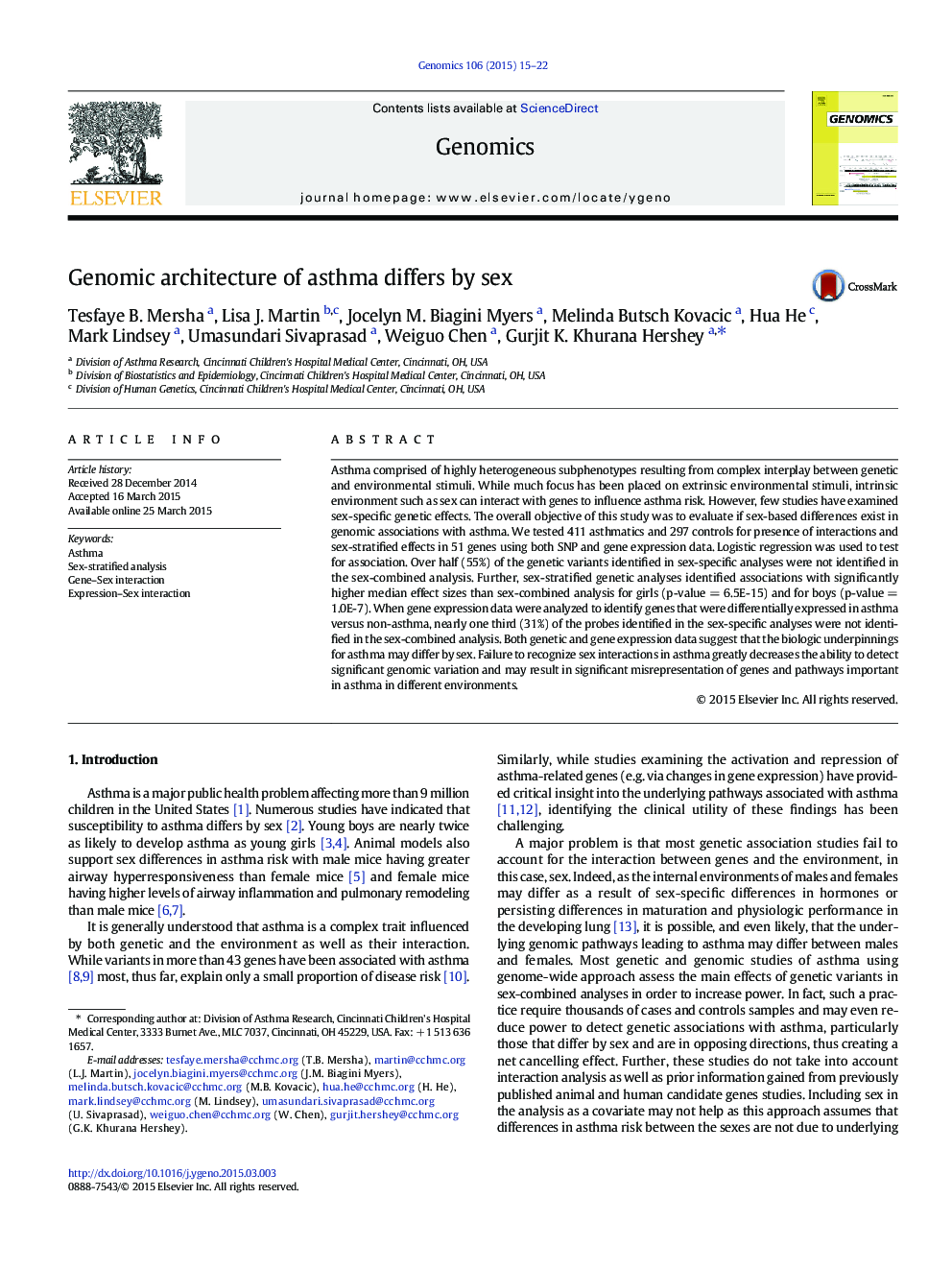| Article ID | Journal | Published Year | Pages | File Type |
|---|---|---|---|---|
| 2820659 | Genomics | 2015 | 8 Pages |
•In addition to external factors, the intrinsic environment, such as sex, can interact with genes to modify asthma risk.•Genetic analysis conducted separately in boys and girls resulted in significantly higher effect size than the combined analysis.•Sex-stratified analyses identified 26 associated SNPs which were not identified in sex-combined analysis.•Sex-stratified expression analysis showed significantly higher median effect size in the single sex compared to the sex-combined analysis.•Opposite effect direction "flip-flop" for boys and girls were shown for all variants which interact with sex.•Both genetic and gene expression data suggest that the biologic underpinnings for asthma may differ by sex.
Asthma comprised of highly heterogeneous subphenotypes resulting from complex interplay between genetic and environmental stimuli. While much focus has been placed on extrinsic environmental stimuli, intrinsic environment such as sex can interact with genes to influence asthma risk. However, few studies have examined sex-specific genetic effects. The overall objective of this study was to evaluate if sex-based differences exist in genomic associations with asthma. We tested 411 asthmatics and 297 controls for presence of interactions and sex-stratified effects in 51 genes using both SNP and gene expression data. Logistic regression was used to test for association. Over half (55%) of the genetic variants identified in sex-specific analyses were not identified in the sex-combined analysis. Further, sex-stratified genetic analyses identified associations with significantly higher median effect sizes than sex-combined analysis for girls (p-value = 6.5E-15) and for boys (p-value = 1.0E-7). When gene expression data were analyzed to identify genes that were differentially expressed in asthma versus non-asthma, nearly one third (31%) of the probes identified in the sex-specific analyses were not identified in the sex-combined analysis. Both genetic and gene expression data suggest that the biologic underpinnings for asthma may differ by sex. Failure to recognize sex interactions in asthma greatly decreases the ability to detect significant genomic variation and may result in significant misrepresentation of genes and pathways important in asthma in different environments.
